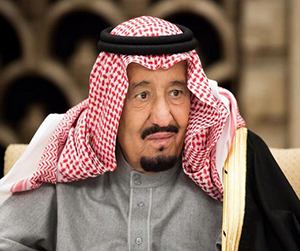Dubai, Mar 19: The Maldives government announced that the official visit of Saudi Arabia's King Salman bin Abdulaziz Al Saud to Male from March 18 had been postponed because of the spread of swine flu in the archipelago nation, however, highly placed sources say the reality is the Saudi King faced terror threats following which the visit was called off.
Separately, there were other media reports that speculated the visit was cancelled due to protests by the opposition parties in Maldives against alleged plans by Maldives' President Abdulla Yameen to sell off a chain of islands and lagoons to Mohammed bin Salman, son of King Salman and Saudi Arabia's defence minister and deputy Crown Prince.
As per the main opposition Maldivian Democratic Party, the plans were to sell or lease Faafu atoll to the Saudi royal family, which would "effectively cede control of an entire atoll to a foreign government."
The MDP expressed serious concern that if this deal went through it would allow a foreign power to control one of the country's 26 atolls and amount to creeping colonialism by the Saudi government.
However, as per sources in the Maldives security establishment, the above two reasons are not why the visit was cancelled. Instead, serious concerns about a possible terrorist threat to the high-powered Saudi delegation during this visit to Maldives, was responsible for the visit being called off.
It is learnt that just weeks before the official visit, based on intelligence provided by Saudi agencies, a Yemeni national Yasir Yahya was arrested in the Maldives on charges of terrorism. The Yemini national, married to a Maldivian woman, had been residing in the Maldives for more than a year and was suspected of recruiting locals to an international terrorist group. He was later deported to Saudi Arabia.
Following this arrest, it was feared that Yahya could have set up terror cells in the country that could pose a threat to King Salman and his delegation.
Saudi Arabia has been lately dealing with threats from the Islamic State of Iraq and Syria (ISIS) and most of the terror attacks in the kingdom have had direct ties to Syria and Iraq. It is also well-documented that the Maldives is fast becoming a recruiting ground for the ISIS and more than 200 youth have left the country to Syria to join the ISIS over the last few years.
The advance security team comprising of Saudi military officers, who had arrived in Male weeks before the King's arrival in the country is said to have expressed serious doubts about the security arrangements and cover being provided by the host government, especially in the face of the imminent terror threat in the country.





Comments
Add new comment